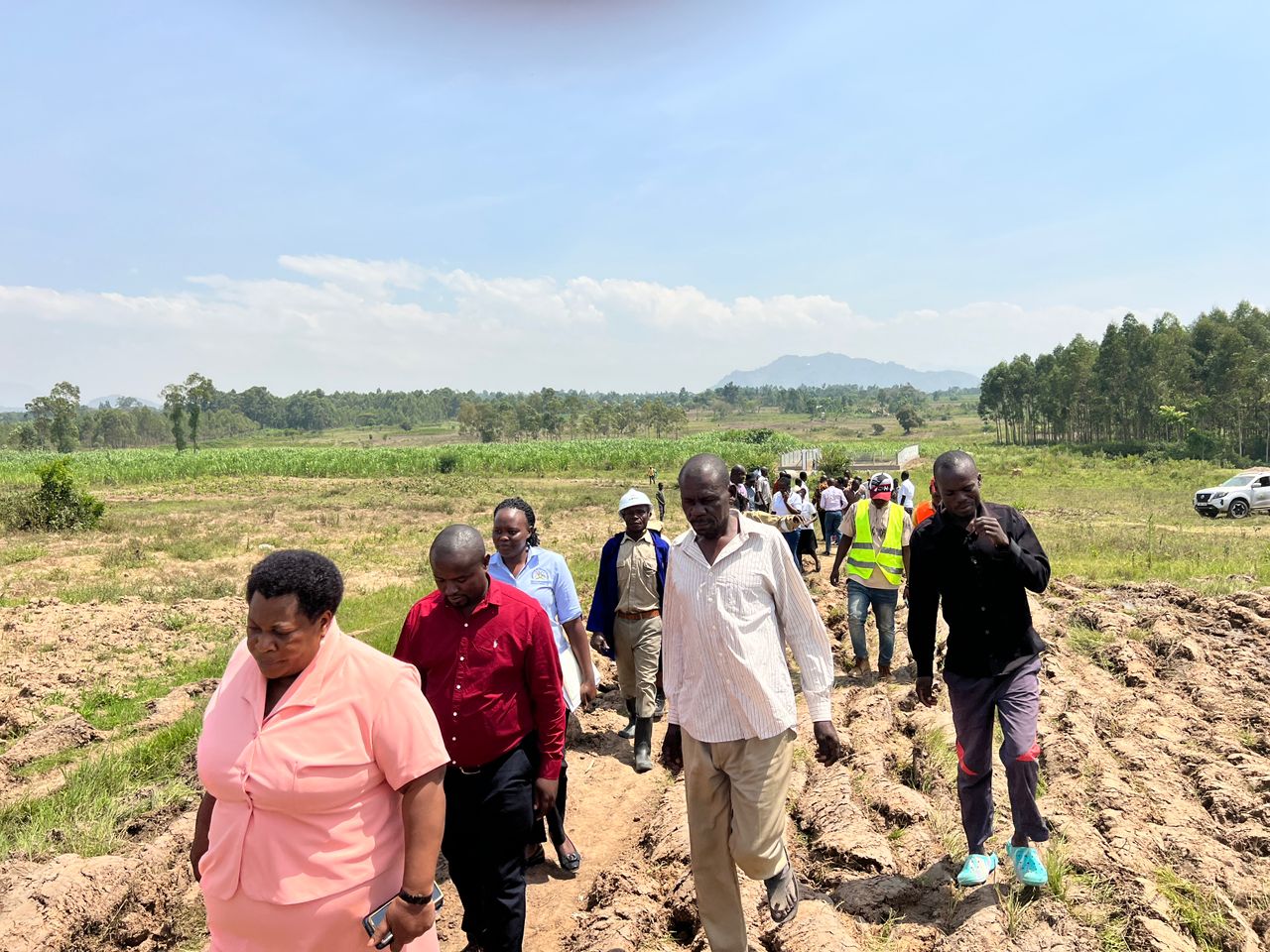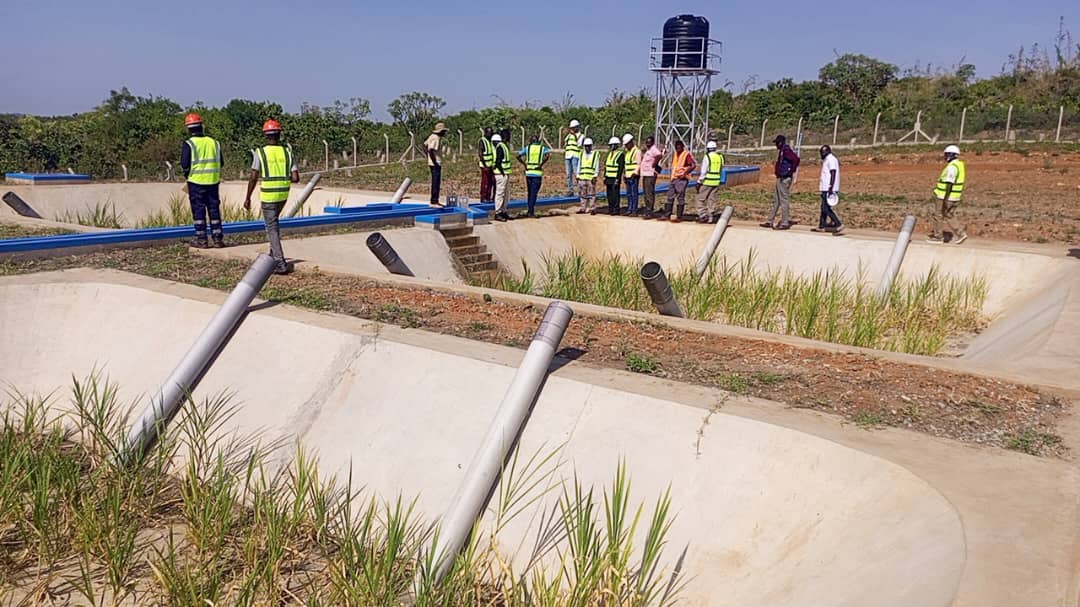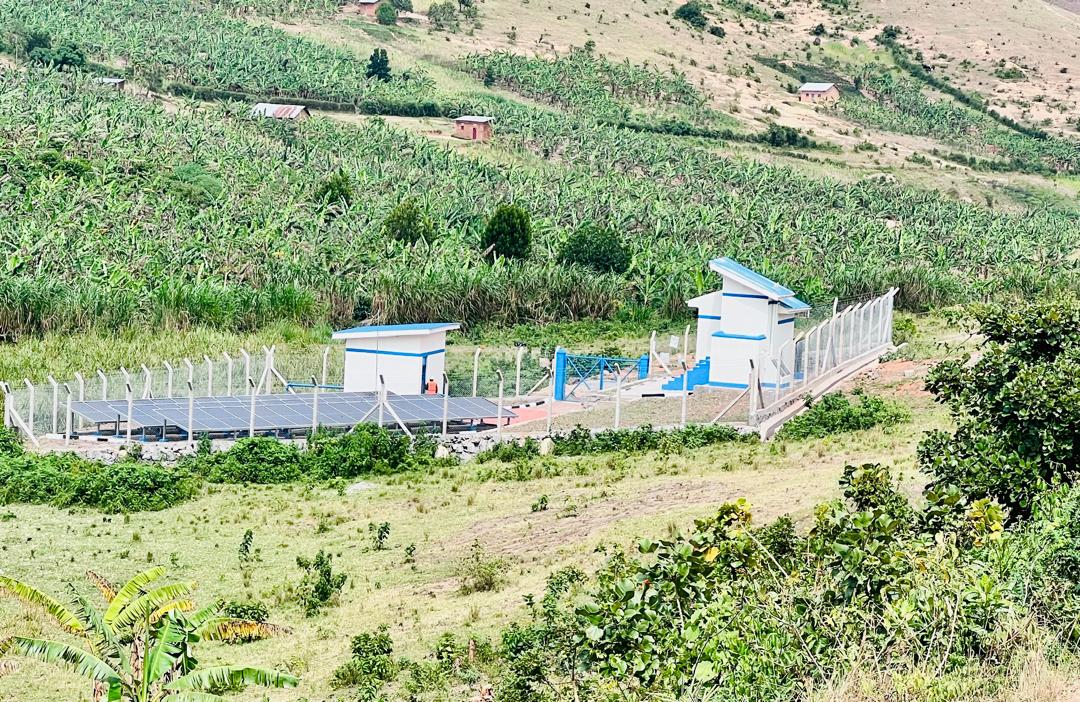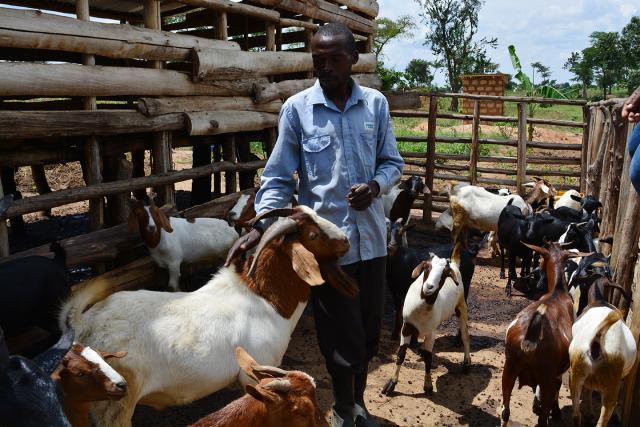
Mitooma goat rearing, touching livelihoods
Mr. Jackson Areeba, a resident of Nshenga B village, Ward II, Mitooma district, is a
member of the Nshenga Abatenga Association.
The group is one of the several groups that benefited from the alternative livelihood
options former wetland users are receiving under the Building Resilient Communities,
Wetland Ecosystems, and Associated Catchments Project in Uganda.
With 45 members, the group has benefited from goat and piggery enterprises. Mr.
Areeba is among those who received goats. He received five goats and has since
grown to become one of the most revered model farmers in the Mitooma district.
He received the goats in 2021. Two years down the road, Mr. Areeba boasts of over
twenty goats. With the goats, Areeba can meet his domestic needs, such as educational
needs, and nutritional needs, among others.
“There is a great change in my life compared to the previous days before I received
from the group. I can say, I am by far better off than when I previously cultivated on the
wetland, because I can sell a goat whenever I need money,” he said. In addition,
Areeba says his productivity has equally improved.
“I also get manure from the goat droppings that help me in fertilising my coffee and
banana plantation. Unlike my harvest has improved. In a season, I harvest between 30-
50 per month,” he adds.
A bunch of matooke (banana) costs shs 20,000, minimum in a good season. This
means Areeba earns an income of between shs 600,000 -1000,000 per month. Going
by the village setting, Areeba leads an improved livelihood and even hopes for the better.
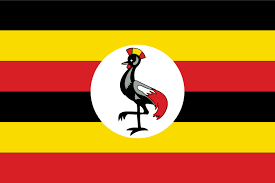 Official Website of the Ministry of Water and Environment
Official Website of the Ministry of Water and Environment

